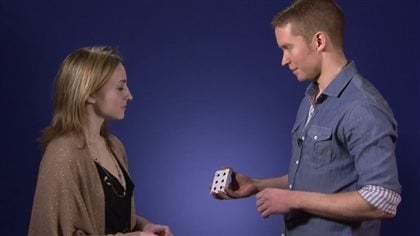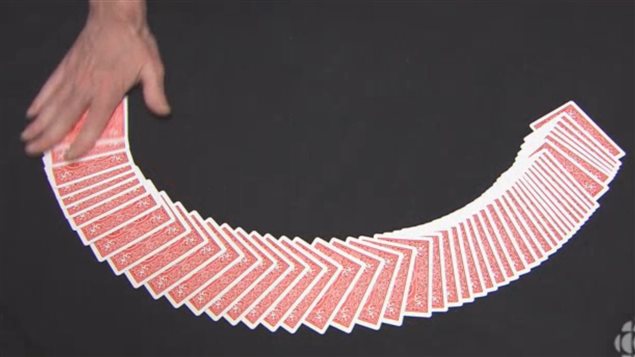How do they do it? When the magician says, pick a card, they are using subtle psychological cues to influence you to pick a card they have already chosen. In other words they’ve decided, and get you to choose their decision.
Now science is trying to study the tricks and techniques that magicians, and even successful sales people have always known.
Jay Olson is a masters science candidate at McGill University in the Department of Psychiatry
ListenOlson, a magician himself, was the lead author of the study published in the journal Consciousness and Cognition, along Amir Raz, a former professional magician and who now holds the Canada Research Chair in the Cognitive Neuroscience of Attention in McGill’s Faculty of Medicine, Ronald Rensink, a professor of psychology and computer science at the University of British Columbia, and with contribution by Vancouver magician Alym Amlani, an accounting instructor at Kwantlen Polytechnic University in Surrey, British Columbia.
Olson says, ““We began with a principle of magic that we didn’t fully understand: how magicians influence audiences to choose a particular card without their awareness”.

In the study, Olson began with a person to person contact, asking them to choose a card as he very quickly flipped through them, riffling through them in about a second, but using a technique to make one card the “target” stand out. Almost all participants chose the target card, and of them almost all were convinced it was their uninfluenced choice.
In the second phase, a similar experiment was conducted but using a computer. Although the same experiment, it lacked any additional magician hints or techniques. In this case the target card was chosen 30 percent of the time. Although still relatively high, obviously much different than the in-person experiment. Professor Rensick says this was “possibly because many of the social and situational factors central to magic tricks were absent”.
Professor Raz says, “Magic provides an unusual lens to examine and unravel behaviour and the processing of higher brain functions”.
Olson says the experiments will continue as they seek to understand how cues used by magicians can influence many of the decisions we make in daily life.







For reasons beyond our control, and for an undetermined period of time, our comment section is now closed. However, our social networks remain open to your contributions.